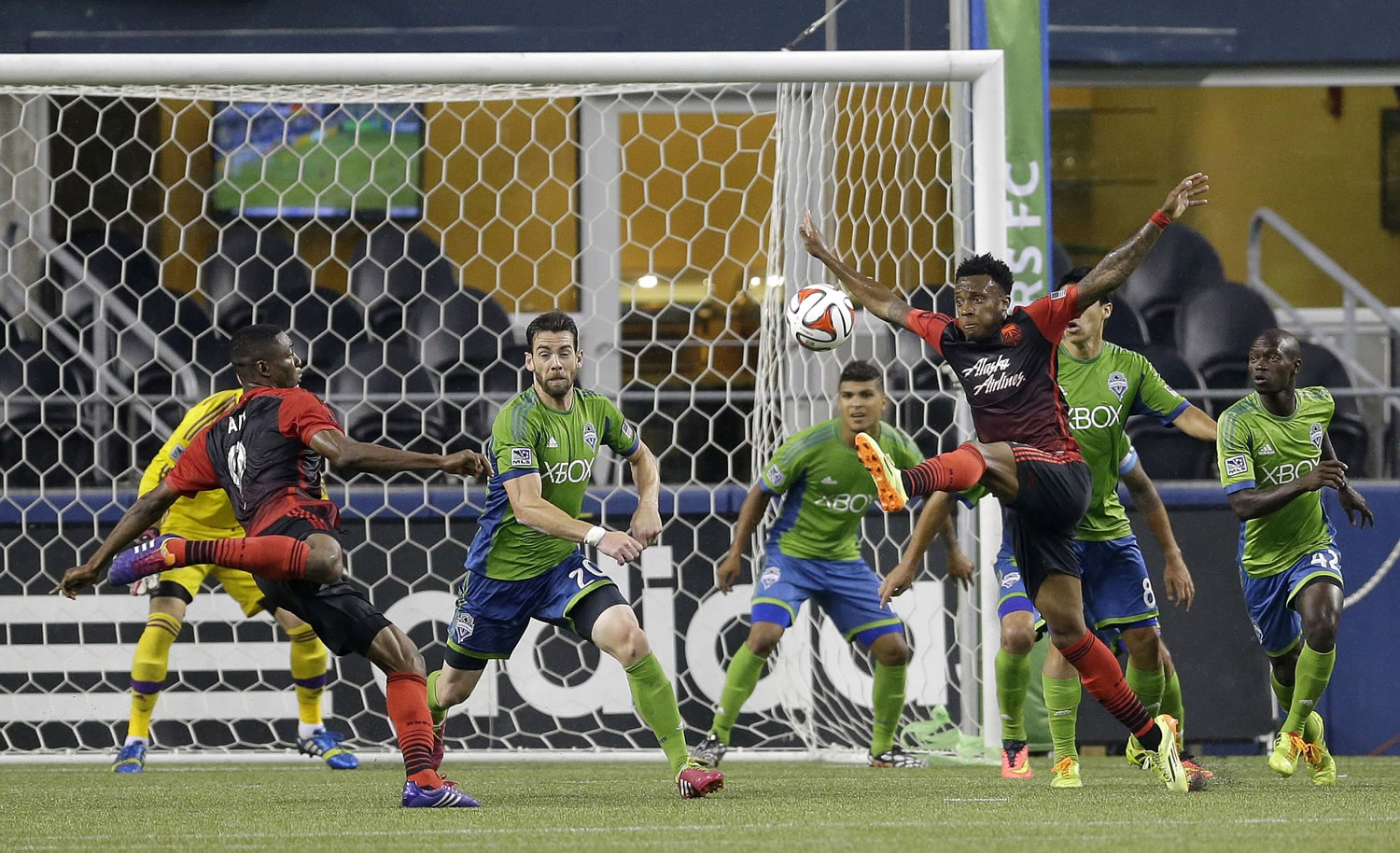The Portland Timbers might begin their Major League Soccer season next weekend.
Or they might not.
That all depends whether the MLS players union goes on strike, a move it has threatened for months.
To bring everyone up to speed, there hasn’t been a collective bargaining agreement between the league and its players since January. Major League Soccer has agreed to raise its salary cap and minimum wage, but it won’t budge on the one thing players desperately want — free agency.
There seems to be no middle ground on that issue. That’s why pessimism is growing each day that a compromise can be reached.
Someone should tell the league to step away from the edge and concede on free agency. If the players go on a lengthy strike, it will turn out about as well for Major League Soccer as a defender trying to stop Lionel Messi.
Because even though Messi plays on the other side of the world, he, Christiano Ronaldo and every other superstar from Manchester to Milan are who Major League Soccer is competing with for the attention of American soccer fans.
Gone are the days when Major League Soccer had a captive audience here. With the internet and the proliferation of soccer on television, you can just as easily follow the English Premier League, Spain’s La Liga or Italy’s Serie A.
Major League Soccer has been successful on a regional level, especially in Portland and Seattle. But national television viewership, the lifeblood of any successful sports organization, is meager even as soccer enthusiasm continues to grow in this country.
The league doesn’t tap the patriotic fervor that draws big World Cup ratings for the U.S. National Team. Simply, there is too much higher-quality overseas soccer that’s one click of the remote away.
A lengthy strike would move Major League Soccer from the outskirts of America’s sports consciousness to the dust bin. And does a league that commissioner Don Garber said is losing $100 million a year really want to be flirting with oblivion?
And over what? A perk (some would argue a right) that athletes have in every other major American sports league.
Free agency didn’t make sense in Major League Soccer’s infancy in the 1990s. The league’s single-entity structure allowed it to put players in markets that were the best fit. The league wasn’t in a position to attract top-tier talent. Stability and control were paramount.
If the league wants to play with the big boys, it has to show it has grown up. Allowing players the freedom to move is the mark of a mature, stable sports league worthy of attracting talent from around the world.
“This is a monumental moment,” former New England player rep and current ESPN analyst Taylor Twellman told the New York Post. “I’ve heard Don Garber say his goal is to be a top league. … If so, one thing is players’ rights, one is salary cap, but the biggest one is player movement. Players have a right (to change teams).”
MLS owners call free agency a non-starter. They say more expensive player contracts will bring about the league’s death, conveniently ignoring that a salary cap could keep spending in check. In reality, it’s all about trying to maintain the control that the league’s single-entity structure offers.
Major League Soccer is at a pivotal point. It has outlasted its predecessor, the North American Soccer League, by six years. The quality of play continues to improve and expansion remains viable.
It would be a shame to see the league throw away that progress by taking a hard-line approach against the players.
After all, it’s the players who draw fans and television viewers, the two things that will ultimately determine the league’s fate.





